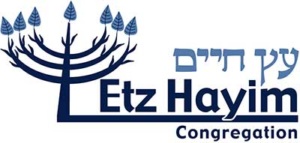This week we read two portions of the Torah combined – Acharei Mot and Kedoshim.
It is striking that parasha Kedoshim appears in this book. It draws attention because it is nothing like the style of Sefer Vayikra, the Book of Leviticus.
It is not a text composed solely of sacrificial instructions, nor targeted to the priests and Levites alone, but to all the people – unlike the rest of the book.
One of the possible interpretations for the sequence Acharei Mot-Kedoshim is that after the Yom Kippr atonement rite, the Torah invites us to continue in this state of holiness. The idea is that, after the collective atonement, a divine challenge is offered to us: “Be holy, for I am Holy” (Vayikra 19: 2).
But what is Holiness? The Hebrew word Kadosh has deeper meanings than the English translation holy. To be holy means to be separated from something else. Different. Especial, but not necessarily better.
Judaism is not a way of life to be lived alone. Judaism is a way to bring divine holiness into the world, keeping each other accountable for our moral challenges and responsibilities.
All our decisions and behaviors reflect holiness. The way we relate to each other at home, at work, at school, online and offline, reflect holiness. We are constantly challenged to make the right decision that will bring us into the realm of holiness, distinctiveness, and uniqueness. In our tradition, the opposite of holiness is the mundane, the ordinary. Therefore, we are being called, especially this week, to be extraordinary.
The charge given to us is to be holy for God is holy. An aspiration to express the highest potential we have for being created in God’s image.
The way to achieve is described in this week’s parasha. The Torah enumerates many mitzvot that are bein adam lechavero – between a person and their fellow. These mitzvot are focused on one main idea, the famous Golden Rule: Don’t do unto others what you don’t want done unto you.
“Do not steal; do not deal falsely with one another”, “Do not swear falsely”, “The wages of a laborer shall not remain with you until morning.”, “Do not hate your brother in your heart”, and at the end of this section, we read: “Love your fellow as yourself” (Vayikra 19:18). This phrase comes at the end of the sequence of ‘negative’ commandments, things we shouldn’t do, in a positive way, giving us the summary and guidance for how to achieve them all. Love and compassion are the keys to find holiness in community.
May we find what is holy in our lives, so you can share it with others, and keep inspiring and caring for our community.
May we keep spreading love, kindness, and compassion to each other as we walk together this unknown path.

